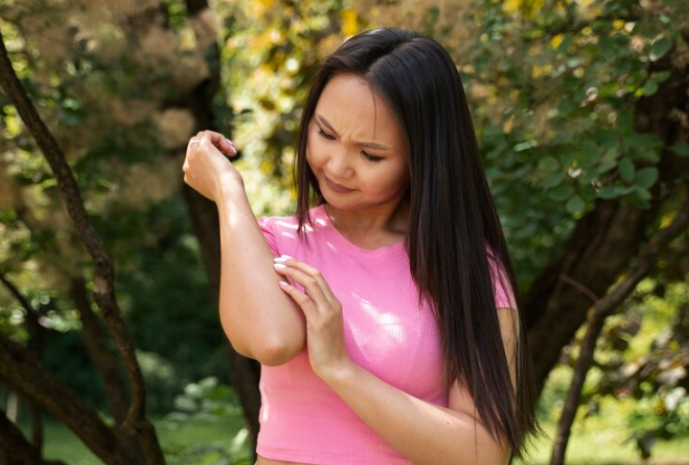
What Is Mosquito Control, and Why Is It Necessary?
Mosquitoes are among the most common pests worldwide, known for their irritating bites and their ability to spread diseases. Effective mosquito control is essential for maintaining public health, preventing disease outbreaks, and improving outdoor comfort. Whether you’re managing a home, a commercial space, or a community, understanding the importance of mosquito control and the methods used to manage these pests is crucial.
What Is Mosquito Control?
Mosquito control refers to the strategies and practices employed to reduce or eliminate mosquito populations in a specific area. The goal is to minimize the risk of mosquito-borne diseases, reduce nuisance bites, and create a safer and more enjoyable environment.
Mosquito control typically involves a combination of approaches, including:
- Source Reduction: Eliminating or managing mosquito breeding sites, such as standing water.
- Chemical Control: Using insecticides and larvicides to target adult mosquitoes and larvae.
- Biological Control: Employing natural predators or bacteria to reduce mosquito populations.
- Integrated Mosquito Management (IMM): A holistic approach that combines various methods for long-term control.
Why Is Mosquito Control Necessary?
Mosquito control is not just about avoiding itchy bites; it plays a critical role in protecting public health, enhancing outdoor living spaces, and maintaining environmental balance. Here are the key reasons why mosquito control is essential:
1. Preventing Mosquito-Borne Diseases
One of the primary reasons for mosquito control is to prevent the spread of mosquito-borne diseases. Mosquitoes are vectors for several serious illnesses, including:
- Malaria: Transmitted by Anopheles mosquitoes, malaria affects millions worldwide and can be fatal if untreated.
- Dengue Fever: Spread by Aedes aegypti, dengue fever can cause severe flu-like symptoms and complications.
- West Nile Virus: Carried by Culex mosquitoes, this virus can lead to neurological issues in severe cases.
- Zika Virus: Linked to birth defects when contracted during pregnancy, Zika is another concern spread by mosquitoes.
- Chikungunya: Causes joint pain and fever, often leading to long-term discomfort.
Controlling mosquito populations reduces the likelihood of disease outbreaks, safeguarding both individual and public health.
2. Enhancing Quality of Life
Mosquitoes can make outdoor activities nearly unbearable, especially during warmer months. Constant swatting, buzzing, and itchy bites can disrupt family gatherings, picnics, or simple relaxation in the yard. Effective mosquito control allows people to enjoy their outdoor spaces without constant irritation.
3. Protecting Pets and Livestock
Mosquitoes don’t just affect humans—they also pose risks to pets and livestock. Mosquito-borne diseases like heartworm can be life-threatening for dogs and cats, while livestock can suffer from conditions like equine encephalitis. Controlling mosquitoes helps protect the health of animals and reduces veterinary costs.
4. Supporting Economic Stability
In areas where tourism or agriculture is a significant part of the economy, mosquito control is vital. Tourists are unlikely to visit destinations plagued by mosquitoes, especially if there’s a risk of disease. Similarly, mosquito infestations can harm livestock health and crop yields, impacting agricultural productivity.
5. Preventing Large-Scale Outbreaks
Unchecked mosquito populations can lead to sudden outbreaks of mosquito-borne diseases. Controlling mosquitoes proactively can help prevent these scenarios, reducing the strain on healthcare systems and public resources.
How Is Mosquito Control Implemented?
Mosquito control requires a comprehensive approach, combining preventive measures with active management techniques. Here are the key methods used to manage mosquito populations:
1. Source Reduction
Source reduction focuses on eliminating breeding grounds for mosquitoes, as these pests lay their eggs in standing water. Common actions include:
- Emptying or removing containers that collect water, such as buckets, flowerpots, and tires.
- Cleaning gutters to ensure proper drainage.
- Covering or treating stagnant water in ponds, birdbaths, and fountains.
- Filling low-lying areas in yards where water tends to accumulate.
Source reduction is one of the most effective and sustainable ways to control mosquitoes.
2. Chemical Control
Chemical control involves the use of insecticides and larvicides to target mosquito populations. These methods include:
- Larvicides: Applied to standing water to kill mosquito larvae before they can mature.
- Adulticides: Sprayed to kill adult mosquitoes, often used during outbreaks or high mosquito activity periods.
When using chemical treatments, it’s important to follow safety guidelines to minimize environmental impact and ensure human and animal safety.
3. Biological Control
Biological control leverages natural predators and bacteria to manage mosquito populations. Examples include:
- Introducing Predators: Fish like guppies or goldfish can feed on mosquito larvae in ponds and water features.
- Bacterial Agents: Certain bacteria, such as Bacillus thuringiensis israelensis (Bti), specifically target mosquito larvae without harming other wildlife.
Biological control is an eco-friendly approach that integrates well with other mosquito management techniques.
4. Integrated Mosquito Management (IMM)
Integrated Mosquito Management (IMM) is a holistic strategy that combines various control methods for long-term effectiveness. IMM includes:
- Monitoring mosquito populations through traps or surveillance.
- Combining source reduction, chemical, and biological controls as needed.
- Educating communities on mosquito prevention techniques.
IMM is a sustainable approach that minimizes risks to the environment and public health.
Tips for Preventing Mosquito Infestations
In addition to professional mosquito control methods, homeowners can take steps to reduce mosquito activity around their property:
- Use screens on windows and doors to prevent mosquitoes from entering your home.
- Wear protective clothing and use insect repellents when spending time outdoors.
- Keep grass and shrubs trimmed, as mosquitoes often rest in shady, humid areas.
- Use mosquito nets when sleeping in areas with high mosquito activity.
Mosquito control is an essential practice that protects public health, enhances quality of life, and supports economic stability. By reducing mosquito populations, we can prevent the spread of dangerous diseases, create more enjoyable outdoor spaces, and safeguard pets, livestock, and crops. Whether through source reduction, chemical treatments, biological controls, or integrated management, mosquito control is a vital step in maintaining a safe and comfortable environment for everyone.
This post was written by a professional at Mr. Mosquito. Mr. Mosquito is a family-owned pest control company dedicated to protecting homes and businesses across the Houston, Texas area, including Hockley, West University, Bellaire, Memorial, and River Oaks. Specializing in termite and mosquito control, they offer a full range of services, from effective mosquito spraying to the installation of customized mosquito misting systems. With a strong commitment to quality, safety, and personalized care, Mr. Mosquito ensures your property remains pest-free, allowing you to enjoy your indoor and outdoor spaces with peace of mind. Trust this local, family-run business for reliable, professional pest control solutions tailored to your needs.
